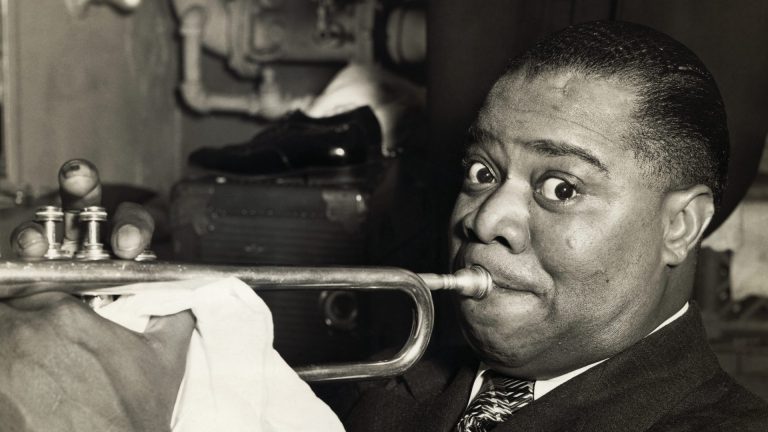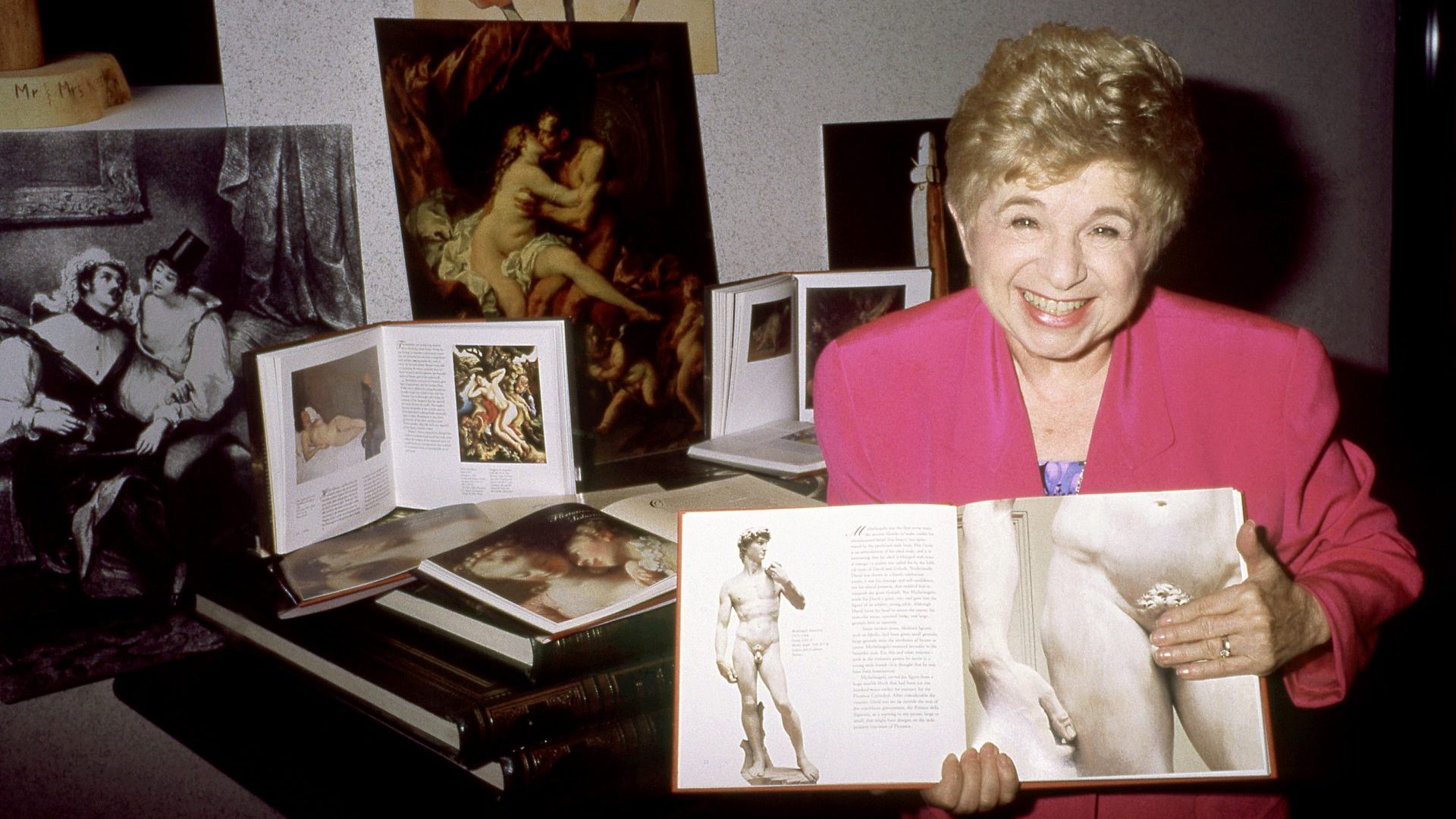“Please welcome sex therapist Dr Ruth Westheimer!” announced David Letterman to his TV talkshow audience one evening in 1982. A moment later, a diminutive woman strode on to the stage – so small, in fact, that she took a moment to climb into one of the chairs. Letterman’s first question was about her new radio show. How was it going?
“I thought that after two months maybe people would have had enough, hearing about sex. But it doesn’t look like it,” she said. Then, with a twinkle in her eye, she added, suggestively: “It looks as if it’s growing.” The audience hooted with laughter. Letterman, for once, was shocked into silence.
If you were an American watching TV in the 1980s and 90s, Westheimer was everywhere, making even the most hardened talkshow hosts blush with her frank approach to sex. She was perhaps the most famous sex therapist in the world. Less obvious to the TV and radio audiences who adored her, she was also a trained killer.
That sparkling on-screen persona was at odds with her brutal childhood. Karola Ruth Siegel was born in Bavaria in 1928, and when the Nazis began their rise to power, her parents sent her to Switzerland. She would never see them again. Irma and Julius were transported to the Łódź ghetto in 1941 and murdered in the concentration camps.
“After what the Germans had done to my family,” she said, “I had no desire to return.” The decision of where to go next was, in her words, “an easy one – Palestine”.
“A Jewish state was forming,” Westheimer explained, “and there at least I was wanted, even needed. Of course, there were a lot of people who didn’t want a state of Israel to exist, so going to Palestine meant going through a war of independence.” Sent initially to a kibbutz, she enlisted in the Haganah, the Jewish underground paramilitary organisation. “During my training, it turned out I was a very good shot. So I was made a sniper,” she said of her war days.
She was taught how to take apart and reassemble a rifle in the dark – a feat she could still perform into her 90s. “I’d sit on a rooftop waiting to shoot anyone who posed a danger. As it turned out,” she said, “I never had to shoot anybody.”
Though Westheimer never fired her weapon, she most definitely went to war. In 1948, aged 20, her position in Jerusalem came under mortar fire and the two female combatants next to her were killed instantly. Left temporarily paralysed, and with severe wounds to her feet, she spent months in recovery.
Suggested Reading

Louis Armstrong, the man who spread jazz’s gospel around the world
In 1950, now married, Westheimer left the newly created state of Israel for Paris, where she studied under the pioneering Swiss psychologist Jean Piaget at the Sorbonne. She eventually took a degree – remarkable for someone with no schooling. In 1956, freshly divorced, she moved to the US, married again and, with assistance from various Jewish charities, began studying for a doctorate in education at Columbia University.
In 1972, she enrolled as a sex therapist at Cornell and by the 1980s, her reputation for sexual frankness was beginning to spread. Westheimer was more than happy to discuss premature ejaculation and sexual fantasies, with an openness that was sharply at odds with prudish Reagan-era America.
But her focus on bodily health also took her into more ideologically charged territory – she endorsed Planned Parenthood and supported Aids research at a time when US evangelicals dismissed the illness as divine punishment for sexual immorality. Her enormous appeal was that she was telling people what they’d wanted to hear for so long – that sex should be fun.
It was with this message that Westheimer took up a lead role in US mainstream culture. She was one of very few academics to star in their own sitcom (Dr Ruth’s House, 1990). She was the subject of an off-Broadway play, Becoming Dr Ruth, and played herself in everything from an episode of Quantum Leap to the feature film Electric Dreams.
There were also documentaries, the most significant of which was Ryan White’s Ask Dr Ruth, which aired just prior to her 90th birthday. In it she spoke for the first time about her experiences in Israel, her expertise with firearms and grenades, and the injury that almost paralysed her.
The most important lesson of all? “A sniper is secretive,” she said. “You do not want to give up your position.”
With a twinkle in her eye, she looked into the camera: “Anybody who knows me well knows that keeping quiet is not something I do well! Thoughts are always popping into my head and then popping out of my mouth.”
That was something that Letterman learned back in 1982. “You have a book that we can look forward to?” he asked his guest, bringing the interview to a close. “A book is going to be coming out,” she told him. “It’s going to be called Dr Ruth’s Guide to Good Sex”. Then, glancing up at Letterman, she took aim and hit her mark perfectly. “You’re going to get a copy for free,” she said.



